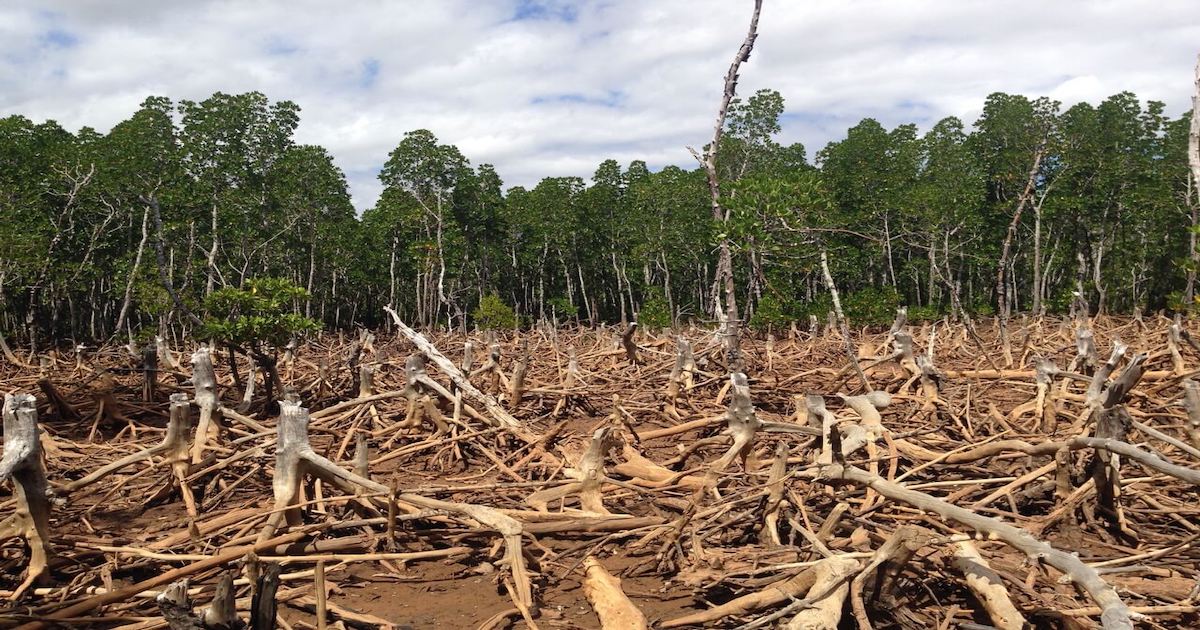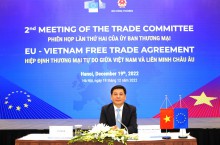The News
The European Commission publishes a bill to combat deforestation and forest degradation
The European Commission EC published bill COM(2021)706 on the EU’s import and export of certain goods and products related to deforestation and forest degradation. The Bill has two objectives: (i) minimizing the consumption of products coming from the supply chain related to deforestation and forest degradation; and (ii) increase EU consumption and trade demand for legal and “non-deforestation” products.
The European Commission EC published bill COM(2021)706 on the EU’s import and export of certain goods and products related to deforestation and forest degradation. The Bill has two objectives: (i) minimizing the consumption of products coming from the supply chain related to deforestation and forest degradation; and (ii) increase EU consumption and trade demand for legal and “non-deforestation” products. The main cause of the above situation is said to be the expansion of agricultural land to produce a number of commodities such as cattle, timber, palm oil, soybeans, cocoa and coffee. Accordingly, the bill is expected to prevent deforestation caused by the production and consumption in the EU market for the above 06 items as well as some of their derivative products, such as chocolate, leather goods, furniture.

Article 27 of the Bill introduces a country benchmarking system. Through this system, the EU will assess the level of risk that countries produce products that are "deforestation-free". This system will rank each country or territory one of three levels of risk: low, standard and high. EU competent authorities could strengthen surveillance for the products concerned produced in high-risk countries; and simplify administrative procedures and accountability for low-risk countries.
Operators and traders will have to demonstrate that their products meet 02 criteria: (i) non-deforestation (produced on land that is not deforested after December 31, 2020); and (ii) legal (in compliance with all relevant applicable laws in force in the country of manufacture).
Businesses will also be required to collect accurate geographic information on the farmland where the goods they supply are grown, with the aim of checking whether these goods are in compliance. There will be sanctions for non-compliance with the foregoing regulations.
The list of products under surveillance will be regularly reviewed and updated, taking into account new databases, such as changing deforestation patterns.
On November 6, 2022, the European Parliament, the European Commission and the European Council concluded a three-party discussion, agreeing in principle to the content of the bill. The bill is continuing to be finalized and is scheduled to come into force in 2023.
In the group of products allegedly related to deforestation within the scope of regulation under the above bill, wood & wood products and coffee are two key export items of Vietnam in the EU market.
- Regarding coffee: EU is Vietnam's largest coffee export market, accounting for an average proportion of 39.3% (by volume) and 37.6% (by value) of Vietnam’s total export of coffee. According to calculations from statistics of the General Department of Customs, Vietnam's coffee exports to the EU market in the period of 2015-2020 reached an average of 641.2 thousand tons/year, with an average growth rate of about 1.5%/year; average turnover reached 1.167 billion USD/year. In 2021, coffee exports to the EU market will be worth $1.025 billion, up 4.3% compared to 2020. According to Eurostat data, in 2021, the EU will import 867.1 million euros of coffee from Vietnam, down 8.65% compared to 2020, accounting for 10.54% of the total coffee import turnover into the EU from the external market.
- Regarding wood and wood products: EU is the fifth export market of Vietnam (after the United States, China, Japan, Korea), accounting for an average proportion of about 8% of Vietnam’s total export turnover of wood and wood products. According to calculations from statistics of the General Department of Customs, Vietnam's export of wood and wood products to the EU market in the period of 2015 - 2020 reached an average turnover of about 508 million USD/year, at an annual growth rate of 2%. In 2021, exports of wood and wood products to the EU market reached USD 619.3 million, up 19.1% compared to 2020. According to Eurostat data, in 2021 EU imports EUR 38.96 billion of furniture wooden products from Vietnam, an increase of 11.47% compared to 2020, accounting for 1.84% of the EU’s total import turnover of this item.
The EU is currently Vietnam's leading export market of agro-forestry products, so the implementation of the bill will have a certain impact on the export benefits of Vietnamese businesses, in the immediate future for two items which are coffee and timber and in the long term may pose a risk to other agro-forestry products. In the coming time, the EU may consider expanding a number of products to the control list, in which it is worth noting that rubber and coconut products can significantly affect exports to the EU. The disadvantage will create an additional administrative burden for farmers and exporters when they are likely to have to meet additional procedures for certification of planting areas, registration of batch numbers, number of fields, etc.
Particularly for wood products and wood products, because at present, the trade in forest products between Vietnam and the EU has been adjusted separately according to the bilateral mechanism - Voluntary Partnership Agreement on Forest Law Enforcement and Governance and trade in forest products (VPA/FLEGT) and the WTO framework, basically this EU bill will have a negligible impact on Vietnam's exports of wood & wood products. The Vietnam-EU VPA/FLEGT Agreement signed on October 19, 2018 and effective from June 1, 2019 has established a legal framework to ensure that all wood products exported from Vietnam to the EU are legally sourced and manufactured. This goal is consistent with the two Parties' commitment to sustainable management of all forest types, through the establishment of the Vietnam Legal Timber Assurance System (VNTLAS), together with the FLEGT licensing mechanism, under which only FLEGT-licensed wood products are allowed to enter the EU market.

-cr-220x145.jfif)


